If you’re weighing Contra, Upwork, or Fiverr to find a smarter way to get clients, this guide breaks down what each offers and what they don’t. From fees to visibility to client quality, here’s how they really stack up.
Let’s help you pick the right stage for your talent.
Marketplace commissions
Contra
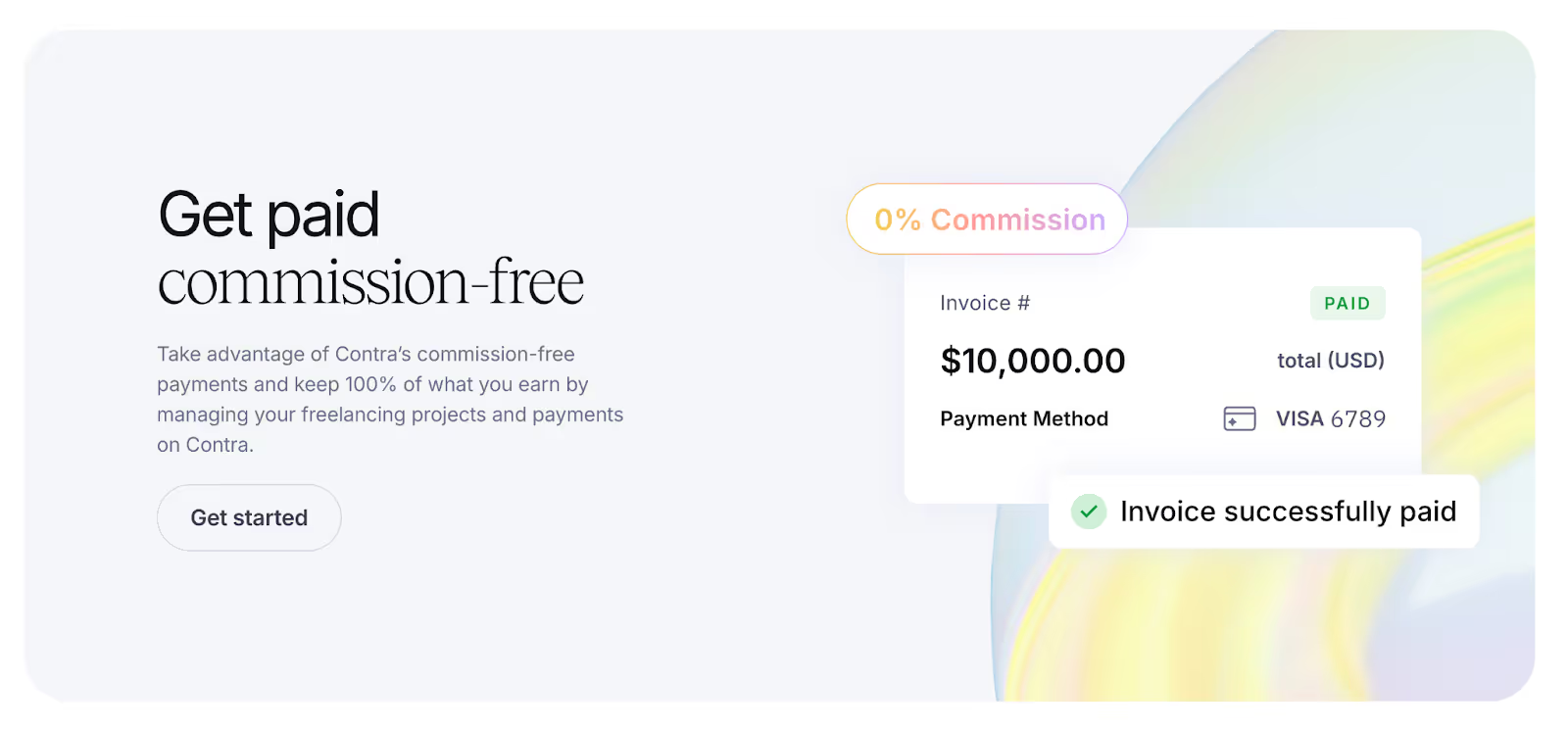
Contra skips commissions for freelancers. Sounds great, right? But there’s a catch: clients have to agree to cover all invoice fees. If they push back, disputes can spark fast, and those aren’t fun for anyone.
Plus, key features like job submissions and portfolio tweaks sit behind a paywall. Sure, you dodge commission cuts, but chances are you'll end up paying for Pro anyway—even if the gigs never come through.
Upwork
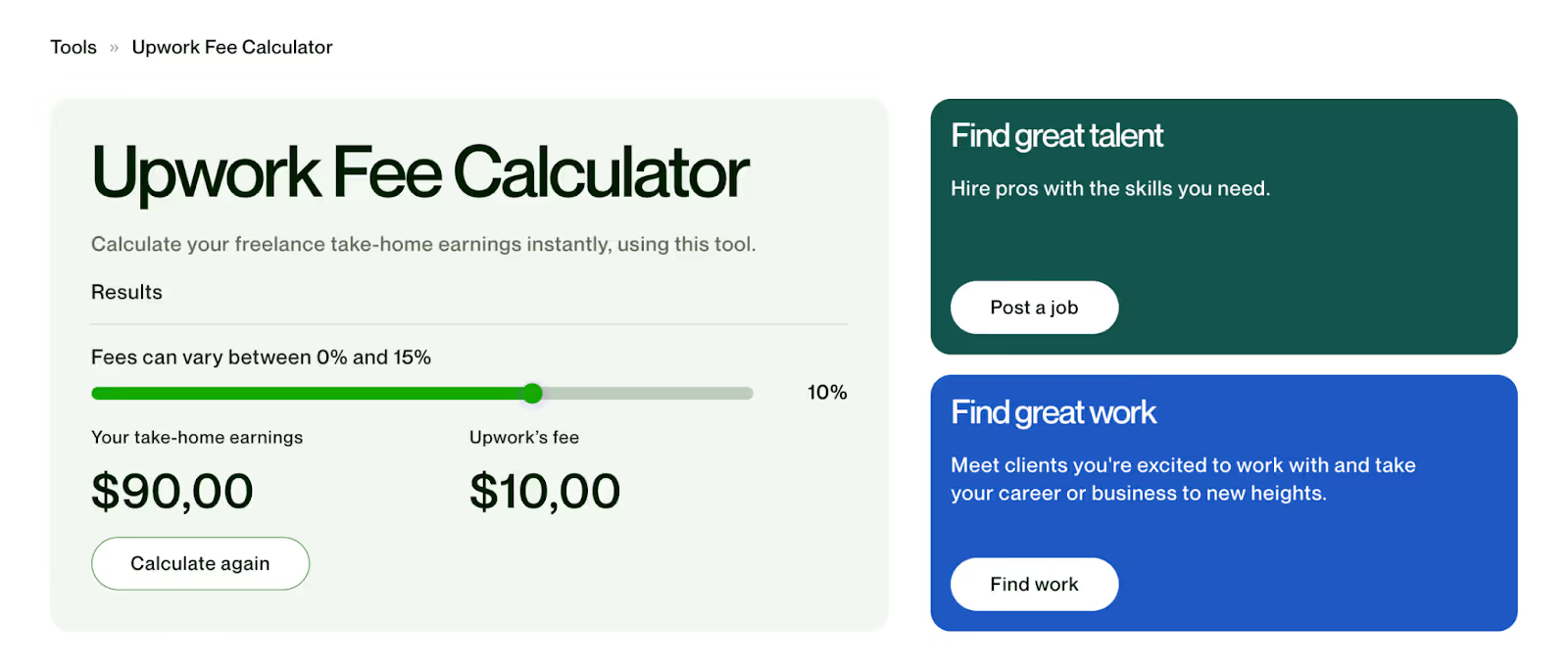
Upwork’s fees land in the middle, 10–15%, a decent balance between commission-free platforms and those with steeper cuts.
The upside? You’re more likely to find consistent work here than on Contra. And once you build a steady client base, those commission rates start to matter a lot less.
Fiverr
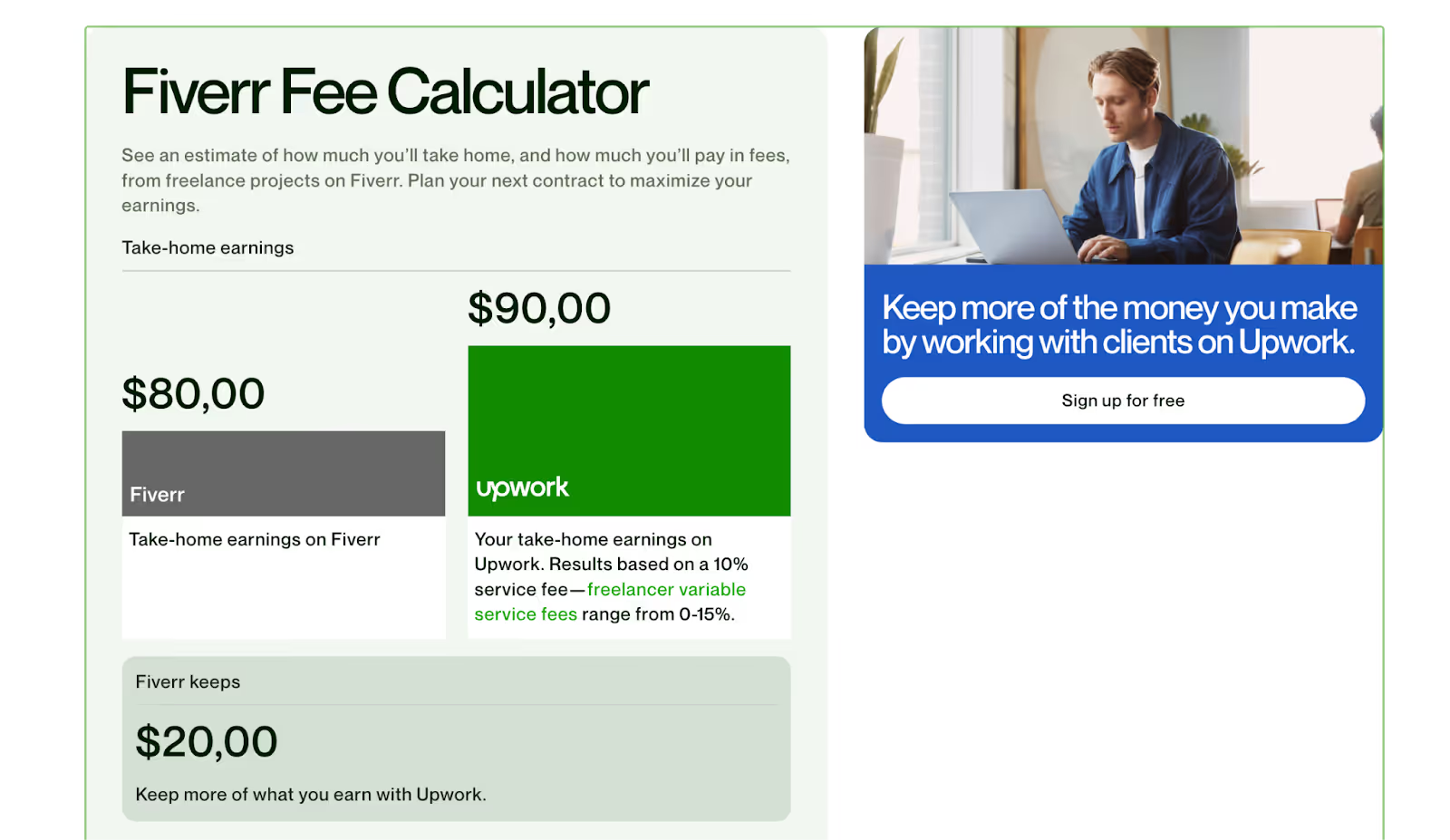
Fiverr tops the list with the steepest commission—20% flat on every sale, no matter what. If you raise the price of your service a bit, maybe you can tolerate the high commission (but you might lose clients).
In short:
- Contra: No commissions, but only if your client agrees to cover all fees. If not, it gets tricky fast.
- Upwork: Great for experienced freelancers chasing big projects. The 10–15% fee is easier to swallow if the work is steady.
- Fiverr: Fine for beginners building a portfolio, but the flat 20% cut makes it tough for pros to justify long-term.
Client and project types
Contra
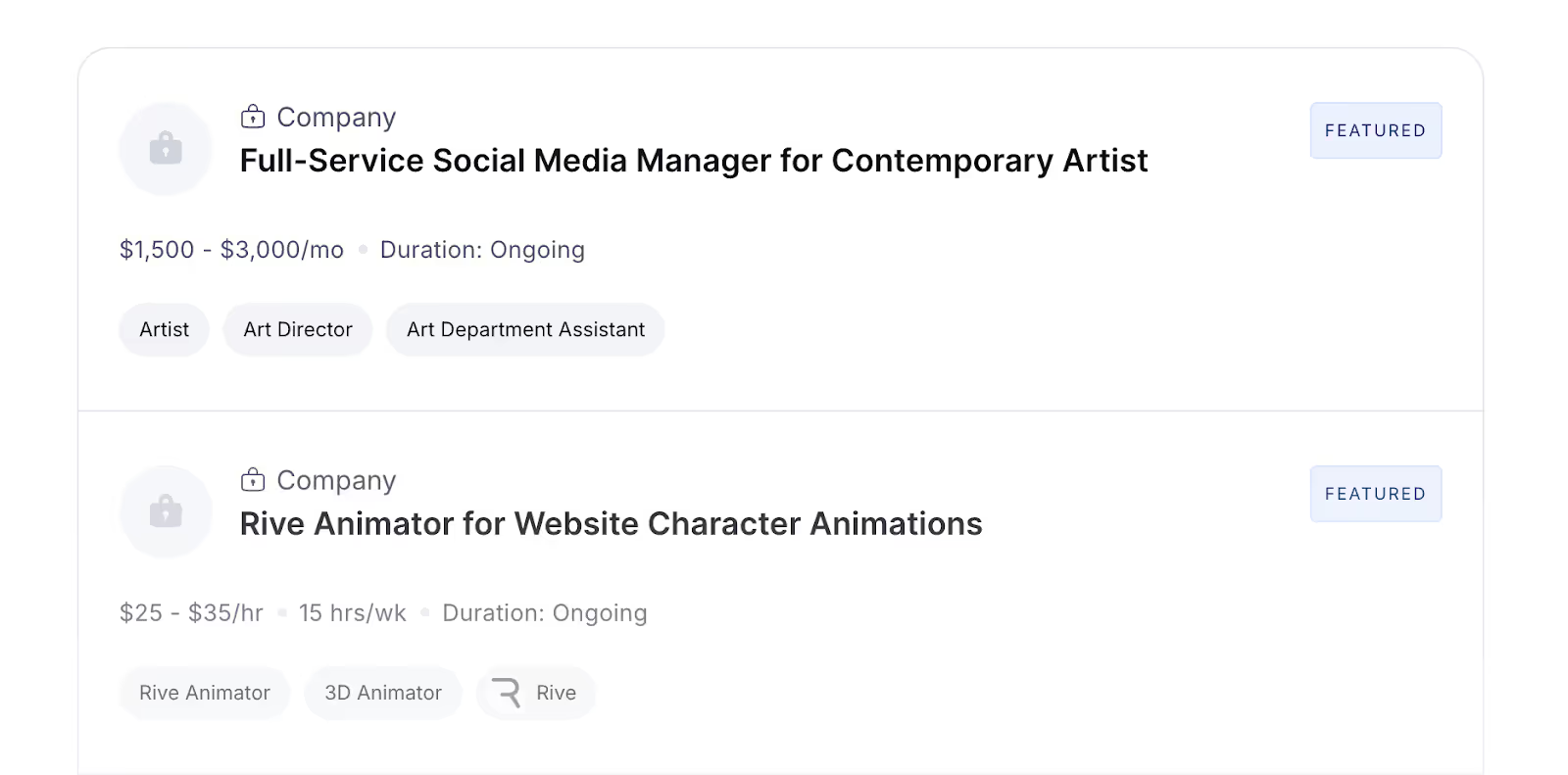
Contra's client base consists of start-ups and entrepreneurs. The most popular job opportunities include graphic design, UX/UI, and software projects.
But there is a significant drawback: You can’t apply for jobs without Pro, so landing work without it is nearly impossible.
Also, the circulation of job postings is low, so even if you buy Pro, it can still be hard to find a job. (Many users complain about it on Reddit and Quora.)
Upwork
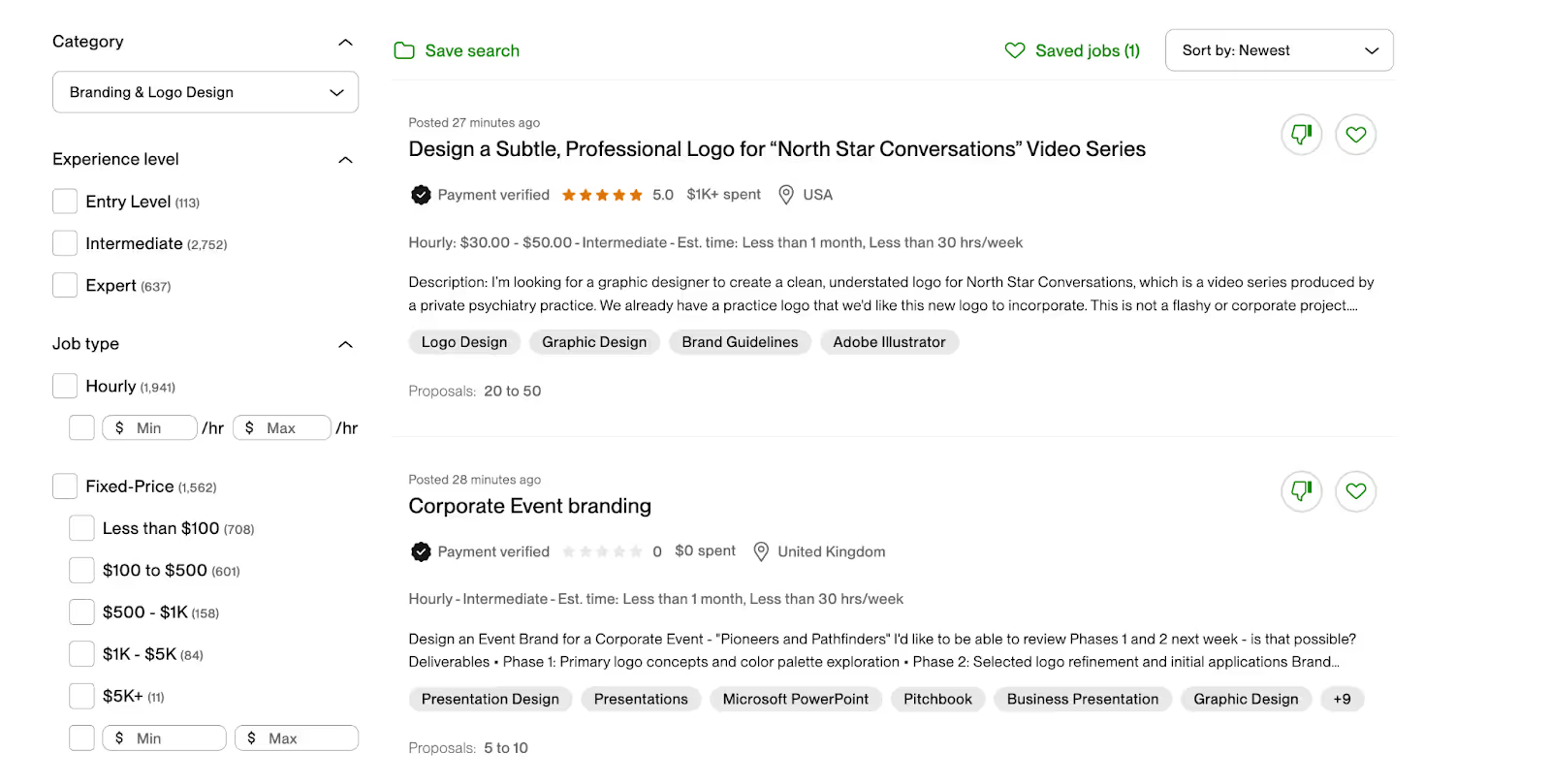
Upwork is probably the largest freelancing platform after freelancer.com.
You’ll find both individual and corporate clients, especially for writing, design, and software gigs.
Project quality is generally solid, but watch out for red flags. Some clients might try to move conversations to Telegram and fish for free work. Always check if their profile is verified and read freelancer reviews before engaging.
Fiverr
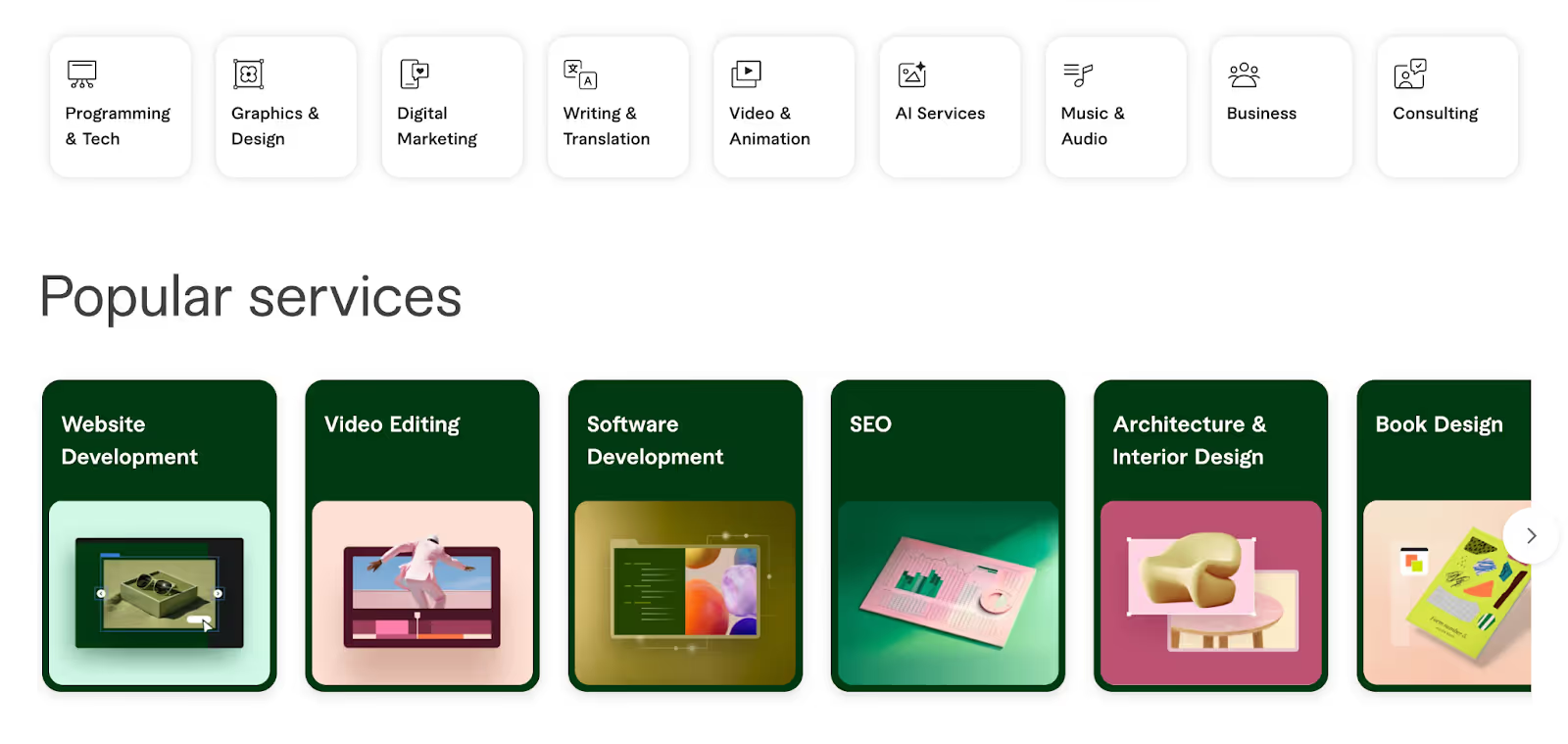
Think of Fiverr as the convenience store of freelancing: fast, easy, and all about quick sales. It's a platform where you can find all kinds of freelance services.
I'd say low-budget clients and fast projects are common here. And with Fiverr, you don't go to the client; they find you through Gigs and buy your service package.
Personally, I felt that you can find work faster on Fiverr than on other platforms.
Conclusion:
- You can find "more visionary" jobs on Contra. You communicate directly with start-up founders or product managers.
- Upwork is large-scale: from large companies to micro-projects. Finding good gigs here takes some filtering.
- Think of Fiverr as a quick-grab marketplace—fast gigs, small budgets, zero fuss. Also, earnings are low and client relations are a bit superficial.
Contra and Upwork are better suited for those who want to build a brand; Fiverr is for those who want fast cash.
Ease of use & interface
Contra
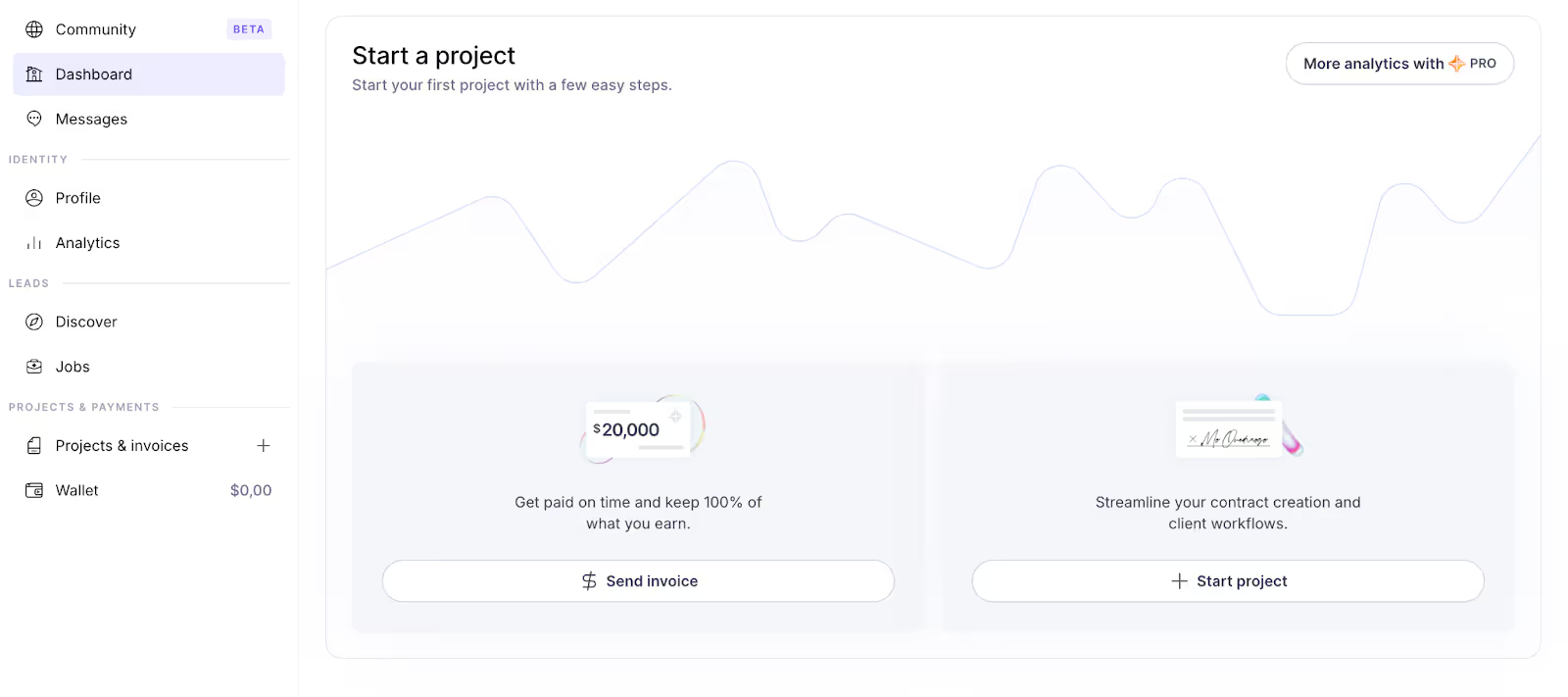
Contra's interface looks modern and simple. You can tell right from the start that you've come to a professional site. Also, since the emphasis here is on portfolios, the customization options are rich (but paid).
Among the best tools for freelancers are invoicing and contract signing. It's nice to handle many things on a single platform, but the lack of a mobile app is a big drawback.
Upwork
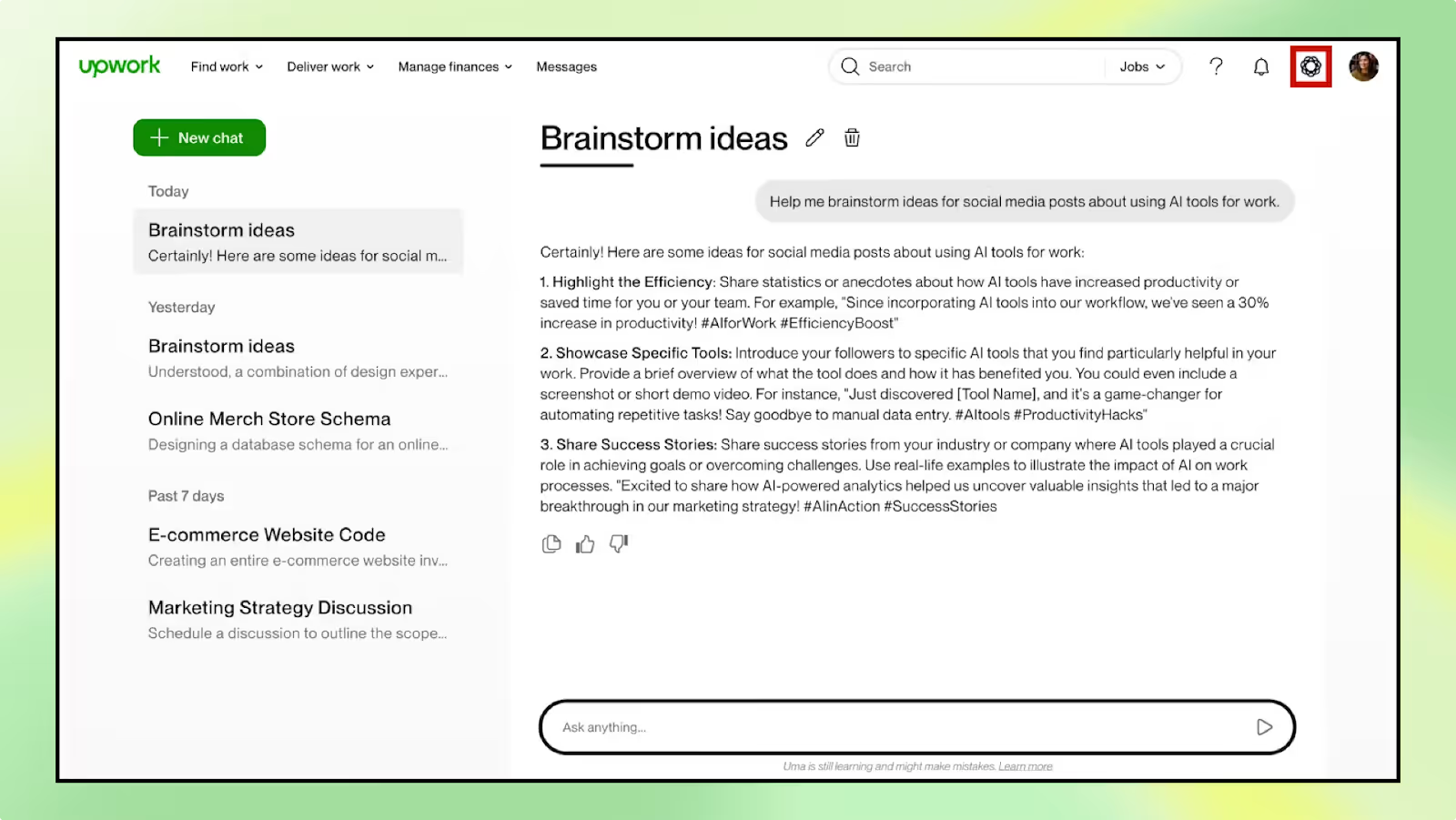
Upwork's pages are very comprehensive. This is an interface that professionals will love, but it can be a disadvantage for beginners.
One of the ones that's definitely worth talking about is Uma AI: It's very useful for writing more persuasive proposals to clients or summarizing a job advertisement. If they keep improving it, I think they can leave other platforms behind.
Last but not least, unlike Contra, it has a mobile app. I like that I can keep track of everything thanks to this mobile app (a very important feature for traveling freelancers).
Fiverr
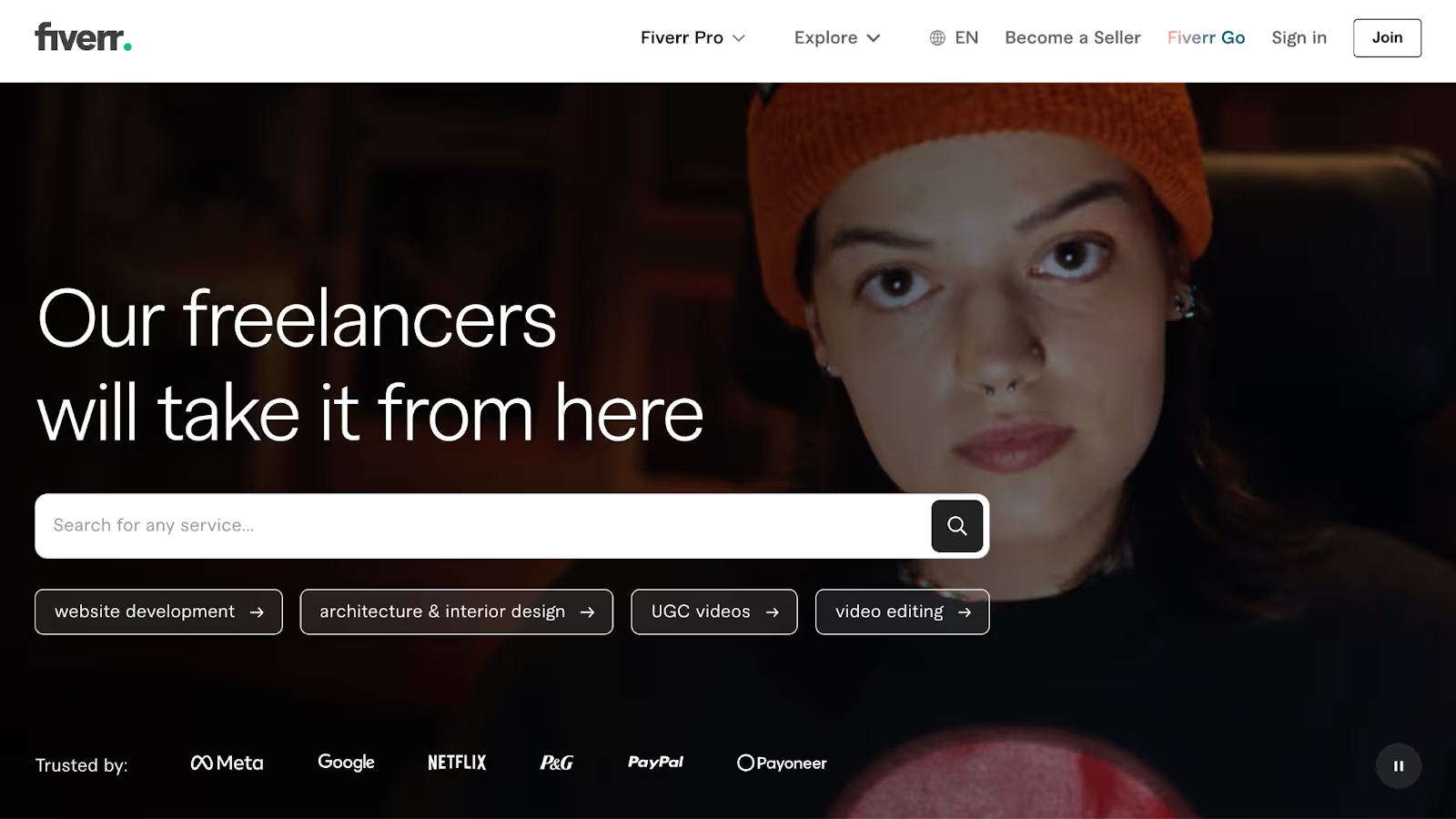
Fiverr's interface is very clear and easy to understand. With its easy-on-the-eyes menus and simple steps for creating Gigs, it is ideal for both beginners and those who are lazy. The mobile app is also a great convenience for those who travel.
Conclusion:
- Contra's interface is minimal and fresh. It's very easy to set up a portfolio with drag and drop.
- Upwork is complex but well thought out. A lot is going on at first glance, but it's manageable once you get the hang of it.
- Just like the rest of the platform, Fiverr keeps things simple here, too. There is nothing confusing, and this makes it easier for beginners.
If you do design or creative work, Contra's interface is for you. Upwork's interface is just right for corporate clients. Fiverr, on the other hand, is beginner-friendly with its simplified interface.
Finding a job process & security
Contra
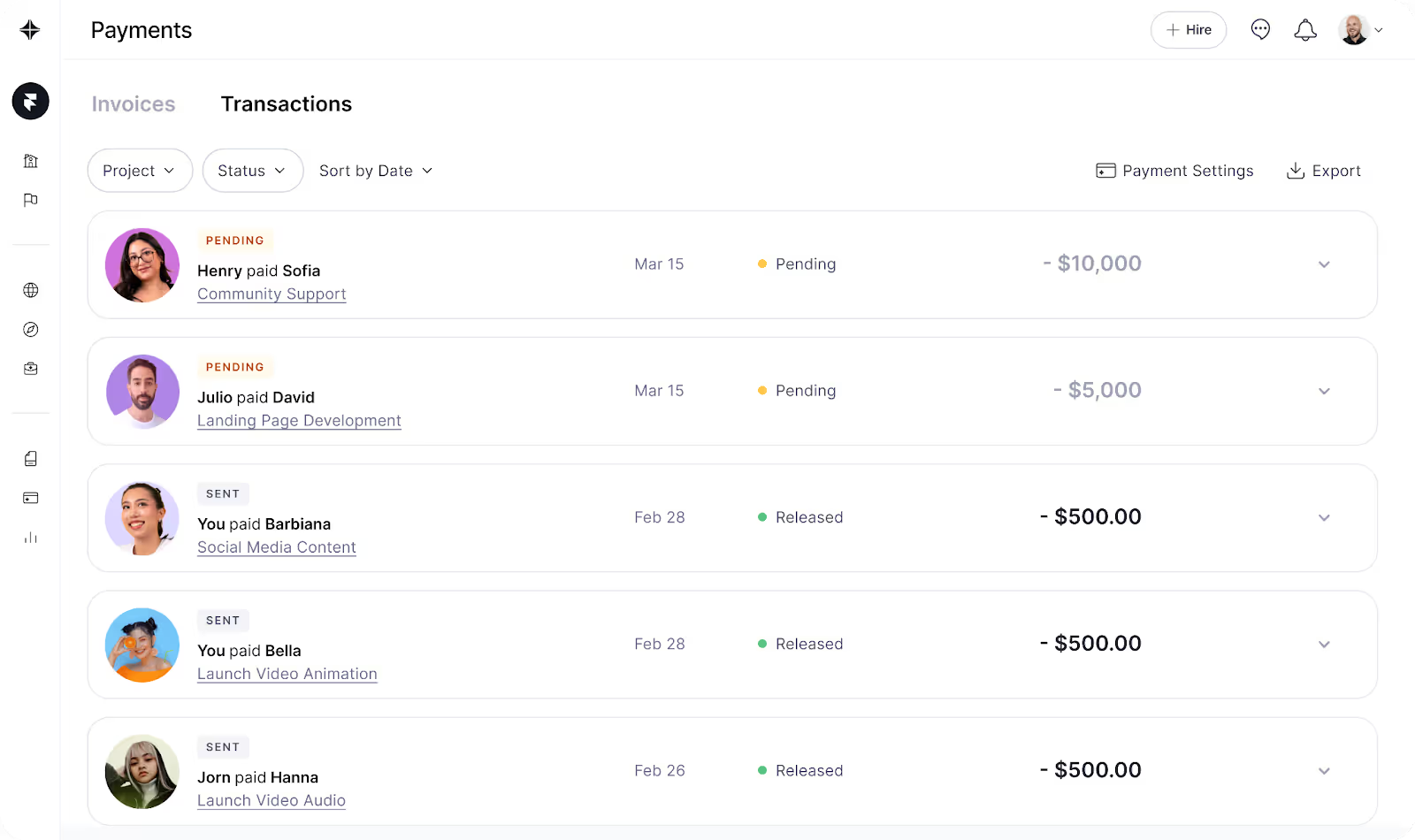
On Contra, you can sign contracts right on the platform. So your scope, payment terms, and everything in between stay crystal clear. If a dispute arises, it is expected to be resolved between the two people and the funds can be frozen for as long as three months.
During this period, Contra is not responsible for making a final decision regarding the dispute, so you will need to talk to your customer and resolve the issue between yourselves.
Also, note that Contra mainly targets experienced freelancers in the U.S. and Europe, where rates often start above $25/hour. It’s built for pros with solid portfolios, not beginners. So, it's clearly focused on higher-value markets.
Upwork
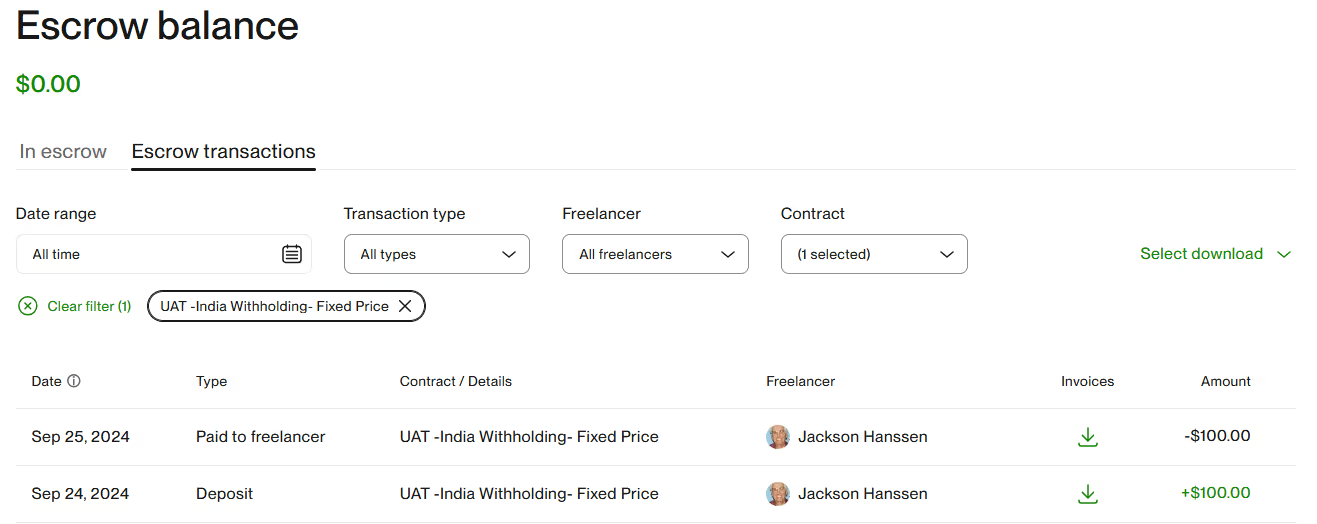
On Upwork, projects are held for 14 days until the client approves them, and then the money is released. This is a common practice on freelancing platforms.
There's also hourly payment protection for clients, meaning your screen is monitored at regular intervals. If you or your client feels wronged, you can turn to Upwork's mediation support.
Fiverr
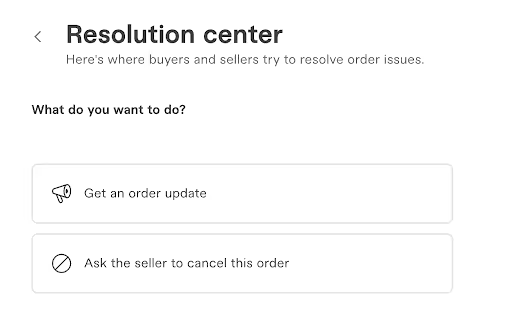
Similarly, on Fiverr, payments are locked until the project is approved. If the client wants to cancel the order, they need to provide a logical reason. So, you have a space to protect and defend yourself when the client objects.
You can fulfill the revision requests of clients who are not satisfied with the project, but if they go over the limit, you can cancel the project and go to Fiverr's solution center for other solutions.
Conclusion:
- Contra lets you create and sign contracts directly, which helps you protect your work. But even if you are right, Contra cannot make the final decision.
- It is also possible to sign contracts on Upwork, and the escrow system is robust. Their mediation support is well developed and, unlike Contra, they can make a final decision.
- Fiverr has payment securit, but almost no structure to protect your rights. The client can annoy you with 3 stars, and even if you object, it may not change much.
Upwork leads the way for secure payment and clear rules. Contra is also safe, but the final decision is between you and the client. Fiverr can be considered the riskiest of them all.
Portfolio building
Contra

Contra is the best platform on the list for growing your career and creating a portfolio. Even if you never land a gig there, you can still flaunt your portfolio on Contra’s sleek templates. There are a few free templates, but not enough (for more, you need Pro.)
Also, if you get a verified expert badge, you can rank among the best and be more visible.
Upwork
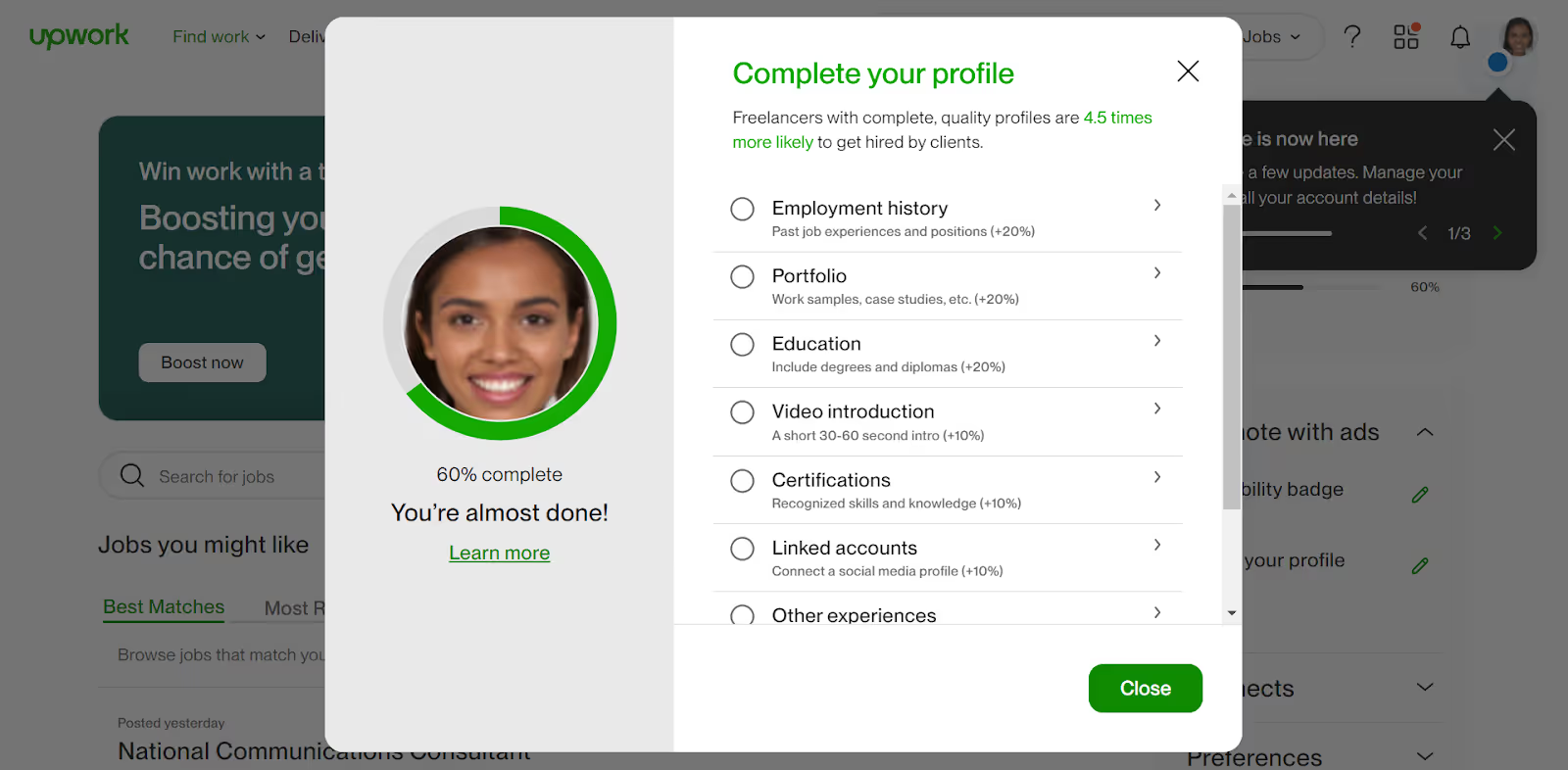
It is possible to create a portfolio on Upwork, but you don't stand out directly. You need to develop your profile over time using the reputation and earning system.
You can create a strong profile and grow your career in the long run, especially with the comments you receive from clients, your profile photo and your work examples.
Fiverr

Fiverr is similar to Upwork, but it's much more difficult to become permanent here compared to the other two platforms.
The reason for this is that since you only sell through Gigs, the potential and client contact shrinks. Since you have very little contact with clients, it can be difficult to establish an emotional connection.
Conclusion:
- In Contra, you can show your portfolio as an agency. This positions you as a "brand", not as an "employee".
- Upwork treats you like a corporate CV. Your earnings, achievements, and client comments give you a reputation.
- Fiverr, on the other hand, focuses on selling services and gigs, which limits career and profile development.
Ranking:
- Contra – Best for building your personal brand.
- Upwork – Ideal for long-term corporate projects.
- Fiverr – Suitable for quick, supplementary income.
Final decision: Which platform is for you?

Remember, these platforms are tools. They bring you to a point. But only you decide which path to take, which client to say yes to, which job to turn down.
And in fact, a good freelancer eventually learns to position themselves independently of platforms.
So the best platform is the one that really takes you a step forward.
Platforms bring jobs, Ruul frees you
Found a client. But what about getting paid, invoicing, and staying globally compliant, with low commissions that give you freedom?
You don’t need to start a company or deal with an accountant.
With Ruul, you can invoice, get paid, and manage taxes as a freelancer. All with commissions starting from just 2.75%.
Focus on your work. Let Ruul handle the rest. Join Ruul now.
Frequently asked questions
Can I use multiple freelance platforms simultaneously?
Yes, diversifying platforms is a common strategy for income stability.
Which platform is best for beginners?
Fiverr is typically recommended for newcomers due to its simplicity and gig-based structure.
How do I transition between platforms?
Strengthen your portfolio, secure client testimonials, and gradually shift your efforts professionally.




.avif)


.avif)


